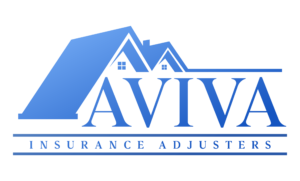Navigating the complexities of damage claims can be daunting, especially in a state like Florida where weather impacts frequently lead to claims. Hiring the right damage claim consultant is crucial to ensuring your claim is handled efficiently and effectively. Here are some expert tips to guide you in making the best choice.
1. Understanding the Role of a Damage Claim Consultant
It’s important to know what a damage claim consultant does. They assess property damages, estimate repair costs, and assist in negotiating claims with insurance companies to ensure you receive a fair settlement. These professionals can mean the difference between a quick, successful resolution and a drawn-out process mired in bureaucratic red tape. In Florida, where natural disasters like hurricanes and tropical storms are common, their expertise is vital. By understanding the specifics of your policy and the nature of potential claims, consultants can tailor their strategies to fit your needs precisely.
In addition to their primary functions, damage claim consultants often act as educators, helping clients grasp the complexities of insurance policies. This awareness empowers clients, giving them a clearer picture of what they should expect in terms of compensation and timelines. For more information on specific services, visit our section on damage claim consultation services.
2. Checking Credentials and Experience
Ensure the consultant has the necessary credentials and experience specifically in Florida, where unique challenges like hurricanes frequently occur. Consulting with individuals who understand the local landscape is invaluable, as they are more likely to be familiar with state regulations and typical damage scenarios. Verify their professional licenses and any certifications they hold, such as those from recognized organizations. An experienced consultant will have a portfolio of past cases and references that can demonstrate their ability to handle complicated claims efficiently.
Furthermore, consultants with a proven track record in Florida are often adept at managing expectations and navigating the state’s intricate insurance market. Their experience can be particularly beneficial after major disasters, when many claims are being processed simultaneously, and the risk of complications is higher.
3. Evaluating Communication Skills
A consultant’s ability to communicate clearly and effectively is vital, as they need to convey complex information to both you and insurance adjusters. The importance of this skill cannot be overstated. A good consultant will keep you informed throughout the process, breaking down complex insurance jargon into understandable terms. This transparency not only promotes trust but also ensures you are fully aware of all developments in your claim.
Effective communication also extends to writing skills. Ensure that the consultant can craft a compelling and accurate representation of damages, as insurance companies often require detailed documentation. This can be critical in accelerating the processing of your claim and, ultimately, ensuring its success. For tips on improving communication, visit our blog on effective communication.
4. Asking for References and Reviews
Previous clients’ feedback can provide valuable insights into the consultant’s work ethic and success rate in handling claims. A quick search online will reveal reviews and testimonials that highlight both strengths and potential weaknesses, guiding your decision-making process. It is often beneficial to contact a few previous clients directly, as unfiltered accounts of their experiences can offer the most transparency.
In addition to specific individual accounts, check the consultant’s standing with relevant professional associations. Membership in such bodies can further validate their credibility and ethical standards, ensuring you’re dealing with a professional committed to delivering quality service.
5. Understanding the Fee Structure
Consultants may charge differently; some work on contingency while others might charge a flat fee. Understanding their fee structure upfront helps in budgeting and avoiding unexpected costs. Contingency agreements—where the consultant is paid a percentage of your claim settlement—can be advantageous if you’re apprehensive about upfront costs, but they may lead to higher overall fees.
On the other hand, flat fees provide predictability, which can be helpful when managing a tight budget. Be sure to discuss any potential additional costs, such as administrative fees, so there are no surprises later. Transparency regarding fees will prevent misunderstandings and foster a more collaborative working relationship.
6. Assessing Availability and Response Time
The faster a consultant can respond and act on your behalf, the smoother the claim process will be, particularly after a significant weather event. Quick response times can be crucial in securing prompt assessments and protecting your interests against potential pitfalls. Ask potential consultants about their typical response times and their process for handling emergencies.
Additionally, consider their workload and whether they have the capacity to take on your case. A consultant juggling too many clients may struggle to provide the personalized attention your claim deserves, which could result in delays or oversights that compromise the outcome.
7. Researching Their Success Rate
A high success rate in claims can be a good indicator of a consultant’s ability to get clients the compensation they deserve. Request case studies or detailed statistics that showcase their achievements in similar cases. While past success is not a guarantee of future performance, it certainly enhances their credibility and suggests a level of competence in the field.
When evaluating success rates, also consider the context: large settlements may be more common in certain areas or with particular types of claims. Successful consultants will not only highlight their victories but also provide a nuanced explanation of the factors contributing to those successes and their adaptive strategies in diverse situations.
8. Confirming Local Knowledge
Consultants with local knowledge will have better insights into state-specific regulations and typical damage types encountered in Florida. This familiarity can be an invaluable asset when managing the intricacies of Floridian claims. They will also understand local building codes and how they might influence repair costs and timelines.
Additionally, local consultants often have relationships with reputable contractors and adjusters, which can expedite the claims process. Their established network and understanding of the local market dynamics can make them more effective advocates.
9. Weighing the Importance of Specialization
Some consultants specialize in particular types of claims, such as residential or commercial. Ensure their expertise aligns with your specific needs. Tap into their specialized knowledge to gain an edge in negotiations or to navigate complex claim requirements smoothly. Specialization can be particularly important in cases involving unique structures or unprecedented damage types that necessitate outside-the-box solutions.
Moreover, specialists are often more attuned to spotting nuances that generalists might overlook. By focusing their practices on specific claim types, they hone their skills in particular niches, thereby improving their efficacy and potentially leading to superior outcomes.
10. Looking for Professional Affiliations
Membership in professional organizations can demonstrate a commitment to staying updated on industry practices and ethics. Affiliations with recognized bodies often indicate that a consultant adheres to high standards of professionalism and continuous learning. These organizations provide ongoing education and certifications that keep members at the forefront of the industry.
Consider choosing consultants who are members of associations like the National Association of Independent Insurance Adjusters (NAIIA) or similar entities. Their adherence to professional ethics and standards is often indicative of dedication to quality service and accountability. Choosing a consultant active in professional communities assures you of their commitment to providing exceptional service.


